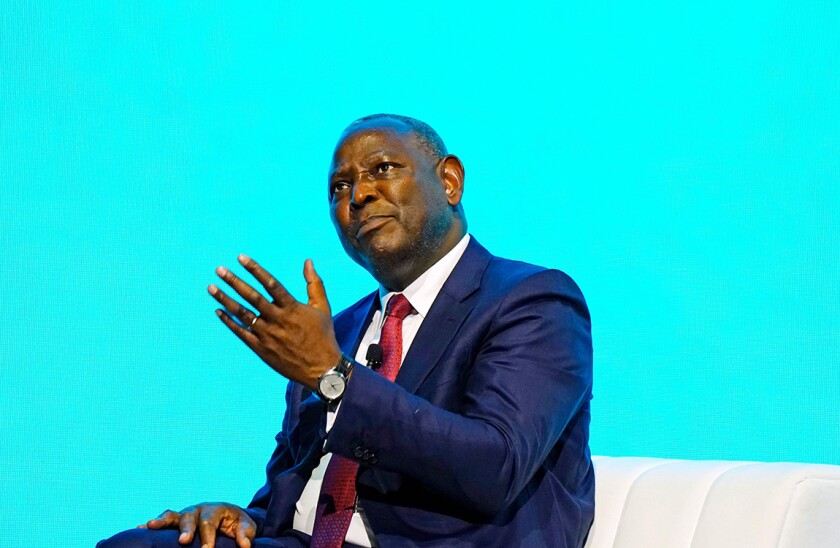Sustainable finance rules in emerging markets need to be standardised, to help increase private sector financing of development projects, experts have told GlobalMarkets.
As well as risk-sharing mechanisms like public-private partnerships, creating clear and consistent regulatory frameworks could help attract investors eager to fund sustainable assets.
In a panel at the annual meetings in Marrakech, James Mwangi, CEO of Equity Group Holdings, said one of the biggest challenges for emerging markets was how to get their projects started.
“People feel we need a coherent ecosystem for financing,” he said.
Ensuring that financial regulatory frameworks were evolving and integrating new market principles of sustainable, green and transition finance was essential, he said.
“Regulating matters when it comes to attracting private capital into projects in emerging countries,” said Nezha Hayat, chairperson of Morocco’s Capital Market Authority. “As developing countries, we are bank-based economies, so regulators that have the main mission to protect investors can ensure good functioning of markets.”
Helping countries develop their financial regulations has long been a priority for multilateral development banks. “My message to MDBs here today is: do both — invest and promote capital markets,” Hayat said.
‘Action is lacking’
Regulators want sustainable finance frameworks to reduce confusion in the market, over how potentially sustainable assets are labelled and categorised, especially in sectors like energy.
“The polarisation between brown and green investments is slowing down progress, it’s missing the transition point,” said Emmanuel Givanakis, CEO of Abu Dhabi Global Markets. “As a regulator our job is to establish a framework so that the finance industry can bring about sustainable finance solutions in green and transition finance products in an open, fair and transparent way, in order to inform through clear disclosure and protect investors.”
Ahead of the COP28 climate summit, the United Arab Emirates has accelerated its work on fostering a strong sustainable finance ecosystem, he said.
“Action is important. We’ve created a lot of awareness in the last decade, but action is lacking. We moved quickly to issue our regulatory framework because we felt that time was of the essence, and we shouldn’t wait for the rest of the world to be proactive,” said Givanakis.
The UAE has been investing heavily in green assets across developing African markets to cement its position as a regional and global frontrunner in this space. The country pledged to invest $4.5bn in clean energy investments in Africa at the recent Africa Climate Summit.
